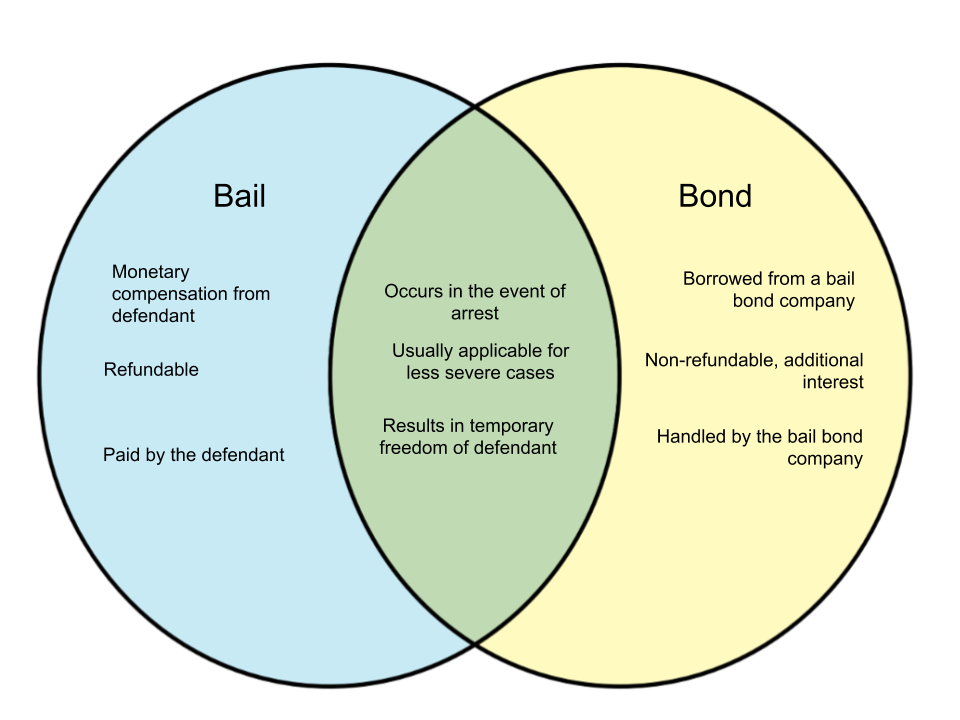Difference Between Bail and Bond
When it comes to events involving arrest or imprisonment, the topic of a bail or a bond can arise. Both may appear to be the same because of the similar effect. However, there is a slight difference between a bail and bond. In this article, the differences between a bail and bond will be discussed.
Bail
When someone is posting bail, it means they are paying a monetary amount in order to secure release. This amount is paid as a form of collateral to ensure that the defendant returns to court and follows the conditions set upon him/her. Some states allow bail, while others do not have the option. A court may also deny bail to a certain individual under specific circumstances like future risk to the public or severity of the offense.
Bond
Some defendants or their families may not be able to afford bail. This is where the bail bond comes in. A bail bond company promises to pay for the bail amount in the case that the defendant forfeits their bail or fails to appear in court. Unlike an actual bail, the bond is non-refundable and is a liability towards the bail bond company. The company will also charge an interest for the amount owed, usually at about 10 percent.
| Bail | Bond | |
|---|---|---|
| Definition | Monetary amount paid for temporary freedom; collateral that defendant will return to court and exercise the given conditions | A pledge made by the bail bond company to play for the bond if the defendant forfeits the bail or does not appear in court |
| Payer | Defendant | Bail bond company |
| Amount | Amount described by court | Amount plus interest, usually between 10-20 percent |
| Refund | Yes | No |

